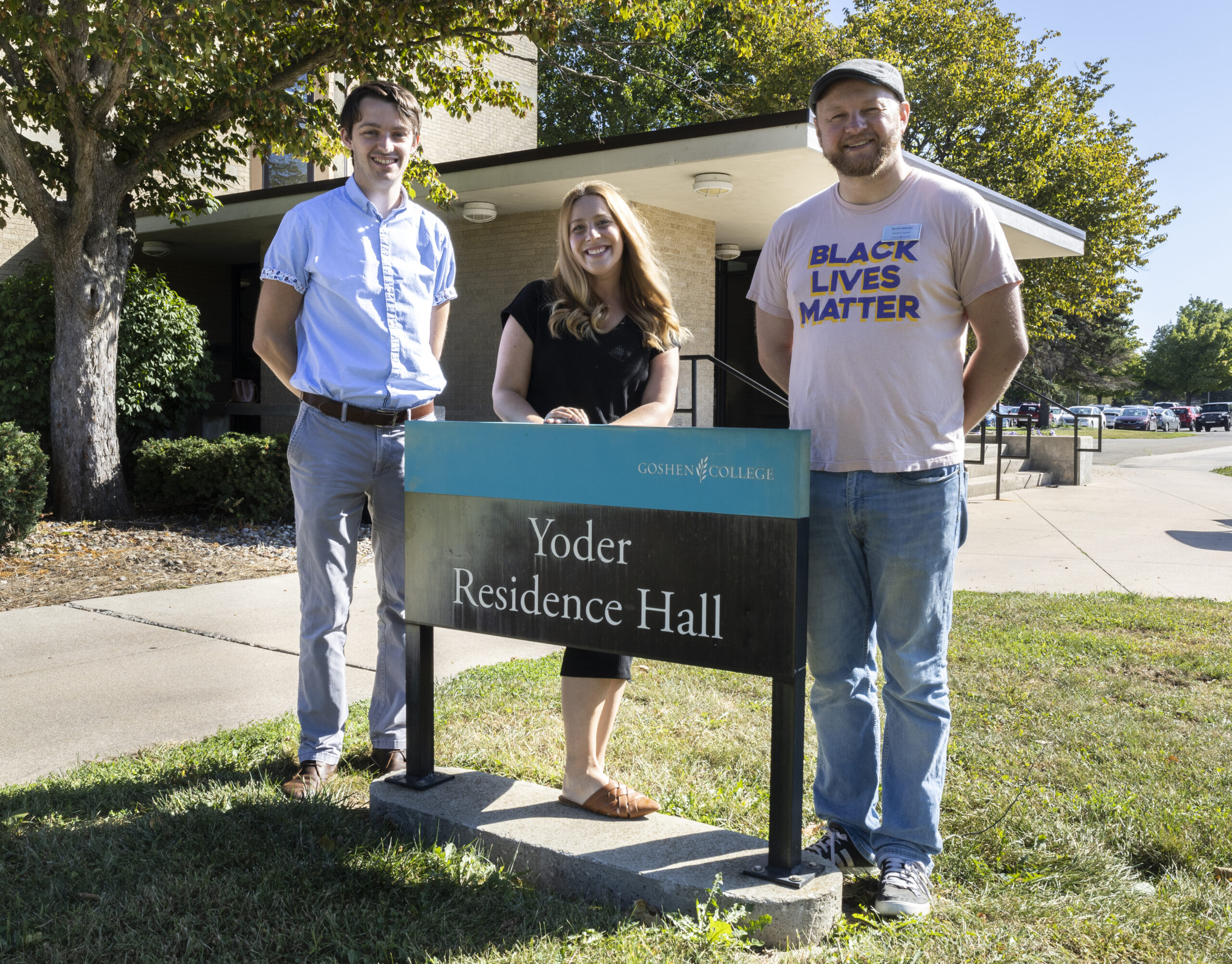After a complete overhaul, three new residence directors are reshaping student life this year.
After losing both Zachary Frank and Phil Brown, former residence life coordinators, the student life department sought out candidates to fill the two existing residence life coordinator positions over the summer.When three strong applicants emerged, they decided to restructure the program and hired the trio to fill the newly-created roles of residence directors (RDs). The department also added a new position: Director of Health and Wellness, filled by Liz Andes.
Kevin Schultz, Emily Hahn and Chandler Buchfeller bring a mixture of expertise. Schultz, a GC alum, is experienced in social work. Buchfeller has worked in residence life at various institutions. Hahn, who was part of the residence life program at GC from 2017-2019, is currently finishing her masters’ in social justice and human rights. Together, Schultz says, they’re “the dream team.”
According to Gilberto Perez, vice president of student life and dean of students, the department had been discussing making changes for years.
“We moved into an assessment period of student life three years ago,” Perez said. When conducted, assessments showed a dip in student satisfaction with the department, which needed to be addressed.
For Perez, the key is supporting student growth. He hopes this year’s changes will bring students into contact with student life employees more regularly, giving employees more chances to listen to and support students.
The new RDs view this year as a chance to breathe new life into the program. After a year and a half of living with COVID-19 restrictions, the team is excited to get students out and connecting with each other again. In addition to planning traditional events throughout the school year, such as “Haunted Halls”, directors are also planning new events, including a “Hot Wings Night.”
In the past, residence life has been an area with high turnover. RDs rarely stay for more than a year, and RAs often don’t sign up for a second term. The pandemic only reinforced that problem. Less opportunities for interaction, and more of a focus on policing last year led many RAs to burn out by the end of the fall semester.
This year, the RDs hope to change that. Some of the changes are practical: RAs are no longer responsible for being the “mask police” on campus, and their duties for rounds have been lessened significantly. Additionally, the RDs hope to reframe the RA role. “RAs are community builders, advocates, and allies for their residents,” Hahn explains. “No one here is a cop.”
Inevitably, situations arise where residents break community standards or have conflicts. Those moments, for Buchfeller, are learning experiences. “RDs are educators,” he said.
Ultimately, the RDs are focused on accountability. Hahn said: “The goal is not to ‘catch’ people, but to create a safe and inclusive community.”
Cade Fisher, an assistant resident director, is glad to see the change in attitude of the new RDs. The three are committed to building the program up in new ways, which Fisher believes is necessary after a year of COVID-19 restrictions.
“Residence life is at its best when there’s a lot of buy-in with the community,” Fisher explained. During the pandemic, residence life lost a lot of that buy-in. Now, the RDs have a unique opportunity to build the program back up, and they’re eager to get to work.



